US Foreign And Budget Policies: Putting Bandages On The Titanic

NEWS JUNKIE POST
Feb 16, 2011 at 12:35 pmEgypt And Tunisia: Real Hope And Change We Can All Believe In
When he was elected in 2008, President Obama brought a sense of hope for real changes not only in the United States but abroad. Some were naively hoping that the new US administration could be a catalyst for a peaceful global revolution which could truly address world problems such as poverty, climate change and social justice. The timing could not have been more perfect considering global capitalism was in the middle of a collapse. This global notion of hope for changes that President Obama conveyed was sanctified by a Nobel peace prize. In addition, during his 2009 Cairo speech, President Obama eloquently defined our universal common grounds despite cultural and religious divisions. Soaring rhetoric was always a key element in the so called “Obama effect”, but unfortunately the great words were never followed by tangible actions.
It is ironic that this corner stone speech on US foreign policy was delivered in Egypt while the country was ruled by Mubarak, a dictator fully supported by all US administrations for the last 30 years. Up to about three weeks ago, Hosni Mubarak was still considered by the Obama administration as an “important ally and good friend” in the region. What is even more ironic is that, more than a year and half later, Egypt has become a key epicenter for real hope and change we can all believe in. It is as if, by grabbing their destiny by the scruff of the neck, the revolutions spreading in North Africa and the Middle-East are putting into action the unfulfilled promises of President Obama.
On Foreign And Defense Policies, The US Is A One Party Political System
During the crisis in Egypt, American politicians displayed a remarkable show of unity. Ever since World War II, it seems that Democrats and Republicans easily agreed on one thing: preserving the interests of the United States. But it is of course a lot more than that in the context of the still prevalent American exceptionalism. “Defending the interests of the US” is nothing less than defending the empire, controlling world wide resources, and shoring up either vassal regimes or transnational corporations.
Mubarak in Egypt and Ben Ali in Tunisia were two typical examples of the American empire vassal structure system. More rapid changes are coming in the global revolution pipeline: the 2011 Tsunami is already hitting Bahrain, Yemen, Jordan, and Algeria. Further, and more importantly for the global economy, Saudi Arabia will soon be in the Arab revolution’s cross hairs. However, what Washington and most Americans are failing to comprehend is the true nature of the new revolution as a challenge to US imperialism and capitalist globalization for the exclusive benefit of the transnational elite.
Despite a change in Washington’s narrative during the last few weeks, the political class has been left behind the train of history by refusing to reconsider some basic parameters. During his press conference, on Tuesday, President Obama talked about his proposed budget, and the events unfolding in the Middle-East. As far as the budget, President Obama’s goal is to cut the budget deficit by $1 trillion in 10 years. The cuts will affect education and social programs, but will largely leave the monstrosity that is the so called national security budget fully funded.
Yet, except for Dennis Kucinich and Ron Paul, America’s ruling class is still unable to see that the real “clear and present danger” for worldwide peace, prosperity and progress is not coming from pseudo terrorist threats, but instead from an out of control empire dwelling on permanent wars. If the US military would pull out from Afghanistan, Iraq, Japan, Germany, South Korea and Africa, the United States could probably cut more than $7 trillion from its budget deficit in 10 years. However, this is never going to materialize unless the American people start taking their destiny into their own hands like Tunisians and Egyptians.
President Obama views himself as a pragmatic leader who wants to implement incremental changes, but despite his rhetoric he is still trying to shore up the foundations of a crumbling empire. The present time calls for deep systemic transformations, not the window dressing change promoted by the Obama administration. Revolutions have a common meaning: they are all a symptom of a broken system. The system is broken globally, and what President Obama is doing, as the current company man of the empire, is putting bandages on the Titanic as opposed to trying to ride the wave of history.
Related Articles
- March 7, 2011 Overpopulation, Climate Change, Food Crisis, War: The Horsemen Of Apocalyptic Capitalism
- January 29, 2012 Has Occupy Forgotten Why?
- January 24, 2011 Tunisia, WikiLeaks And Food Crisis: Forces For A Global Revolution
- March 15, 2011 Libya, Bahrain: Does The Empire Want The Arab Revolt To Be Crushed?
- March 27, 2011 Is A Just And Sustainable Global Governance Possible?
- June 4, 2011 America: Sex, Lies And Politicians
6 Responses to US Foreign And Budget Policies: Putting Bandages On The Titanic
You must be logged in to post a comment Login

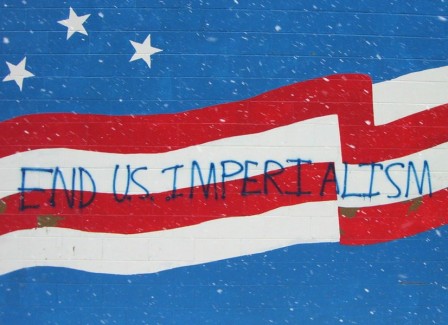
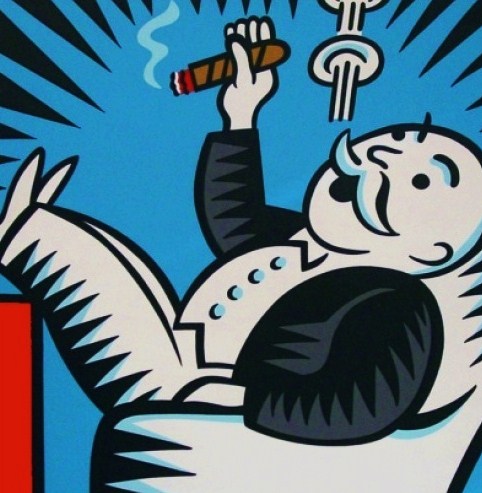
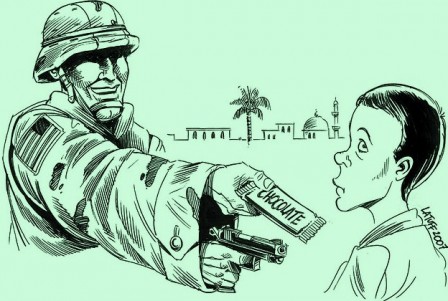
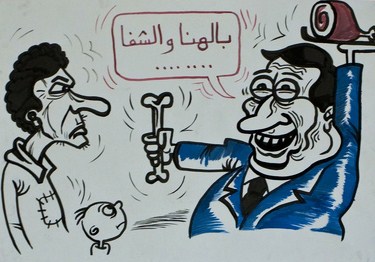
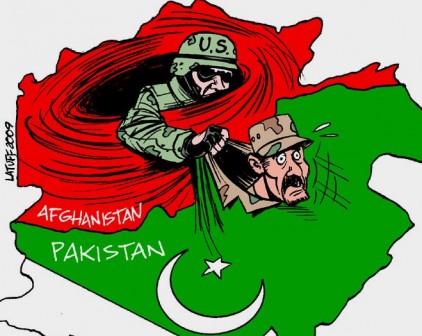











Pingback: A DailyKix Top Story - Trackback from DailyKix.com